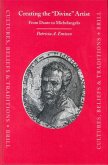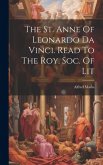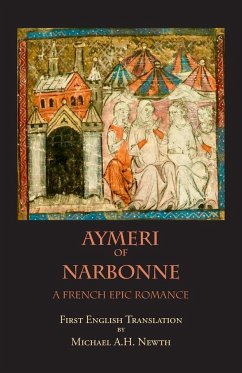"Michelangelo, explain this passage from Dante for us," Leonardo Da Vinci cries out across the piazza, "They say he's your favorite poet." Words such as these might have begun a brief interaction between the two creative giants that prompted the historian, Giorgio Vasari, to write that the two felt an "intense dislike" for each other. History shows Michelangelo and Leonardo were fierce competitors in the late Renaissance, but fails to explain just when this animosity began, or its origin. Leonardo and Michelangelo's dislike of each other began somehow. It is difficult to believe the intensity of dislike that Vasari and others relate derives from simple differences in style and personality; it started before Michelangelo began to paint seriously and Leonardo had never competed with him in marble. In reading Vasari, it seemed as though there must have been a physical incident involved. What really happened between them? I began the tale about their personalities and relationships as a novella to emphasize the technical aspects of their creative techniques. I wanted to tell how they might have reacted to each other's techniques and methods, as well as how their personalities might have evolved in the process. Soon, I realized that these gigantic personalities needed to be acted out on stage, not confined to a short story. As a play, I have tried to create a blend of technical details and personal interactions suitable to light theater. 1501 takes place in the late Renaissance in Florence, after Leonardo had completed The Last Supper in Milan, but before painting the Mona Lisa. Michelangelo, unknown for painting, has recently received the commission for David, and young Raphael is becoming recognized locally for his potential to become a master. The intense competitive spirit among the artists is not fully developed when they happen to meet and decide to form a cooperative project under the guise of testing the public's preferences between reality and beauty when viewing current art. Together, they struggle toward their goal, while unknown forces determine their success. Raphael suggests the three artists together create a single work that would be both real and beautiful and use it to test the public's response. Amused by the suggestion, Leonardo readily accepts. Although Michelangelo hesitates, he is urged to accept the challenge during a visit from Savonarola's ghost who threatens his work with David. The artists agree to follow Raphael's suggestion to work together while still satisfying their individual goals. As they work together in Leonardo's hidden workshop, the artists discuss philosophy and artistic technique. As they become familiar with one another's personality and style, Michelangelo feels a growing sexual attraction to Leonardo, prompting Savonarola's ghost to appear and remind him of their plot against Leonardo. But Leonardo's charm is too great, and Michelangelo breaks his vow to David. Meanwhile, Machiavelli, periodically snooping about, has discovered Leonardo's workshop and becomes suspicious about the two artist's behavior. Unbeknownst to Michelangelo and Raphael, Machiavelli leverages his discovery to achieve his own political goal. While the artists wait in the workshop for the finished work to be discovered and evaluated by the public, their mutual animosities and historic ill feelings flare.
Hinweis: Dieser Artikel kann nur an eine deutsche Lieferadresse ausgeliefert werden.
Hinweis: Dieser Artikel kann nur an eine deutsche Lieferadresse ausgeliefert werden.








